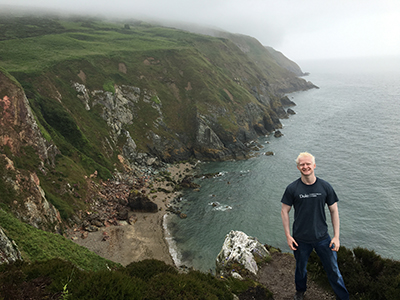
BREAKING NEWS: DukeEngage Student Discovers That He Takes Something for Granted!
I teach young people at a school for refugee and immigrant youth, most of whom are in Ireland without parents or guardians. Their routes to Dublin vary; many are smuggled in from the Middle East while others have been rescued from trafficking circles originating in Eastern Europe or South America. Regardless of their background, they are all bursting with a unique resilience and an enthusiasm for learning that rivals some Duke students, despite the fact that many of them have never attended regular school before. They’re just happy to be here and their optimism is admirable.
My role as a teacher is interesting. Monday to Thursday, I’m really more of a TA and a friend to them as I help them work through math/English worksheets, accompany them on trips to rural Ireland to go canoeing, or show them how to play basketball. However, on Fridays, I get to take more of a driver’s seat and teach a class of my own design. I decided, for reasons I’ll elaborate on below, to teach a class on social media and videography.
This proved to be much more complicated than I originally anticipated. There are very strict laws in Ireland about photographing refugees, especially those under 18 years old. They’re an understandably vulnerable population, so teaching a class where cameras are explicitly involved proved to be tricky waters to navigate. I was initially inclined to do a complete 180 and change class subjects upon discovering this, but after lots of reflection and talking to my supervisors and DukeEngage coordinator, I decided to persist.
My work at Duke had much to do with my decision to continue with videography. At Duke I’m paid to help manage the @dukestudents social media channels. In doing so, I’ve developed a deep respect for the potential of these media to connect all of us together. Platforms like Snapchat and Instagram have incredibly immersive powers, making it possible to broadcast every element of your life to your ‘friends.’ Both prospective students in China and alumni in South Africa alike are able to view Duke as a beautiful wonderland, full of diverse and passionate people.
Most of the young people I work with are not in a place in life right now that they can effectively use social media. However, my ‘@dukestudents’ experience prompted me to keep with the class because I have come to realize that these skills are quintessential to being a member of the 21st century. It should be a right and a privilege to be able to post photos to our heart’s content as a form of both expression and of record keeping. Previous generations criticize mine for our seeming lack of privacy, but I’m sure many older adults wish that they had pictures and videos from their childhood and 20s as readily available as we do.
Additionally, because so many of these young people come from such fragmented families, separated often times by whole oceans and continents, Snapchat and other platforms may eventually provide an incredible communication channel between separated individuals. If the youth I work with here are somehow able to get in contact with friends from wherever home is, they don’t have to rely on simply describing different cultures, like Ireland’s. Instead, using the power of just a smartphone camera and an email address, they can show them. Having a diplomat for a dad meant that I moved every two or three years growing up, but I was fortunate to have technology to help my friends I left understand the new things I was getting to experience. I only wish my students could have modes of communication at least as good as mine.
I want these young people to have the same opportunities as us. Freedom of speech and freedom of expression are fundamental rights. Just like we need basic literacy to read, write and speak in the first place, so do we need social media literacy to effectively communicate and self-express in 2016. When the young people achieve English proficiency to enable them to matriculate into regular Irish schools, they shouldn’t be blindsided by a young population that has been saturated with smartphones and constant connection to internet from birth.
We are aware—I hope—of how much we take our educational opportunities, safety, and general standard of living for granted. When I came to Dublin I was genuinely surprised to realize the importance of teaching social media, something I used to think was just a way of feeding one’s own ego.
